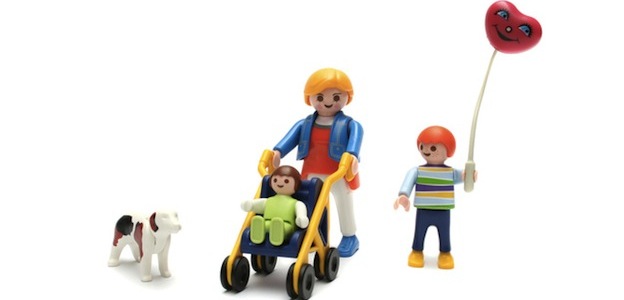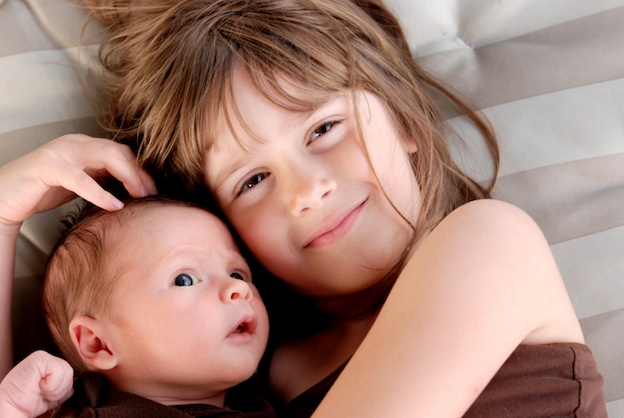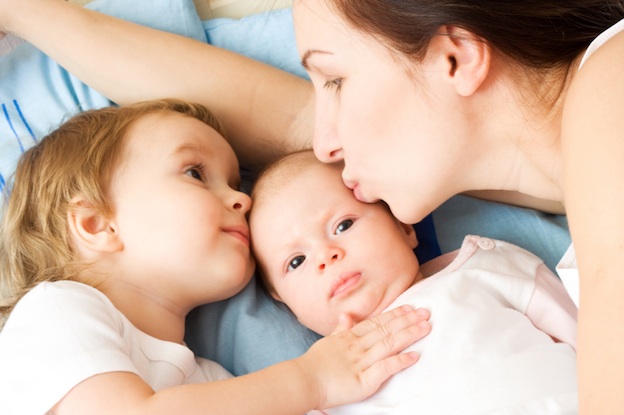SingaporeMotherhood | Parenting
July 2015
Kid-Spacing: When should you have your next Child?

Choosing whether to have another child or not is a big decision for parents, and so is the timing of having a second, third – or more. The decision of how far apart to space your children is usually a personal one and factors that are taken into consideration include a couple’s finances, the availability of child care, and whether the parents are physically and mentally prepared to have another child.
While there’s no one-size-fits-all solution, there are certain medical and psychological issues that should be taken into consideration when it comes to kid-spacing your family.
[banner][/banner]
The Pregnancy Gap
Medically speaking, there is an optimal gap between pregnancies — between 18 and 24 months, says Dr Tony Tan, Specialist in Obstetrics & Gynaecology and Consultant, Raffles Women’s Centre.
However, he adds, it can be difficult to time the pregnancy so accurately. Dr Tan explains: “When trying to conceive, the success rate is dependant on the age of the woman and the frequency of sexual intercourse around the time of ovulation. Couples may take up to six to 12 months to get pregnant. I often ask patients to start trying for a child after the previous one becomes one year old, as it may take another six months before the woman gets pregnant.”
A short inter-pregnancy interval of less than 12 months has higher risks than one with an interval of 12 to 18 months.
These risks, which include intrauterine growth restriction, preterm labour, neonatal death and neonatal morbidity, are slightly higher when the interval between two pregnancies is less than 12 months.
If the prior delivery was a Caesarean section and a vaginal birth is attempted in the next pregnancy, a short inter-pregnancy interval may increase the risk of a uterine rupture.
Is Mum Ready?
From a psychological point of view, it is also important for the mother to feel ready for another child, as caring for a newborn or a young child is physically and psychologically draining.
“This is especially so for the mother, who bears most of the responsibility towards the care of the child. It is therefore pertinent that the mother feels ready and motivated to be a mother again. If the family chooses to have kids in quick succession, the contribution from the other members of the family, especially the father, becomes more important, ” explains Dr Lim Boon Leng, a psychiatrist at Gleneagles Hospital.
Having children in quick succession also has an impact on the older child. “The child suddenly loses the attention of the parent and may sometimes display regressive behaviour such as throwing more tantrums or be more fearful of leaving the mother’s side,” says Dr Lim.
Weighing In
Having children a year (or less) apart has its advantages and disadvantages; parents should weigh these up when making their decision, Dr Lim suggests.
Advantages:
• The mother can complete the family quicker and consolidate and shorten the number of years that would be tiring in taking care of infants.
• The older child is not sufficiently old enough to have formed his or her territory or understand the meaning of possession and hence is less likely to reject or fight with the new sibling.
• It may be less stressful for the parents as the children can share many resources given that they are similar in age, for example, they can have the same group of friends and go for the same parties.
Disadvantages:
• It will be stressful for the mother to be looking after a one-year-old while she is pregnant. She may not be able to get enough rest.
• The mind is less likely to have recovered from the mental exhaustion of looking after the previous baby and may not be in the best shape to look after the next one.
• The mother may feel like she did not have enough time and bonding with the first born before the next one is born.
• The mother will have less of a chance to experience caring for the children as individuals and the memories of the first few years may be a blur given the stress and amount of work.
• Medically, if the birth interval is less than 12 months, the risks of autism, prematurity, low birth weights, neonatal morbidity and mortality are higher, says Dr Tan.
Losing Mum’s Attention
It is common for children to act up when a younger sibling is born and, according to Dr Lim, this happens most when the older child is between 18 months and four years old.
There are several ways that parents can deal with this behavior.
• Identify that these behaviours are a result of the stress of having a newborn sibling and suddenly losing the mother’s complete attention.
• Remain patient and calm, and reassure your child that he is still very much loved.
• Instead of punishing your child for the wrong behaviour, try encouraging and praising the right behaviour.
• Do things as a family together and involve your older child in the care of the younger sibling, under supervision. For example, your older child can sing a lullaby to help Baby go to sleep.
The best age gap is four years, Dr Lim recommends. From a psychological perspective, this is ideal, he says. “Research points to the best social and emotional development in siblings with a four-year gap. The four-year-old child is past the ‘terrible twos’ stage (which can last from two to three years of age) and is generally more independent.
“The relationship between the older child and the mother also loses its exclusivity at this point as the older child goes to school and starts developing other relationships, such as with friends. This means that he is less likely to be jealous and to reject the newborn.
“Research has also shown that with a four-year gap, the mother is more likely to treat the newborn as if he was the first-born, and provide special care and attention. This is likely because an adequate time has passed for the mother to yearn to have a newborn again.”
All content from this article, including images, cannot be reproduced without credits or written permission from SingaporeMotherhood.
Follow us on Facebook, Instagram, and Telegram for the latest article and promotion updates.







